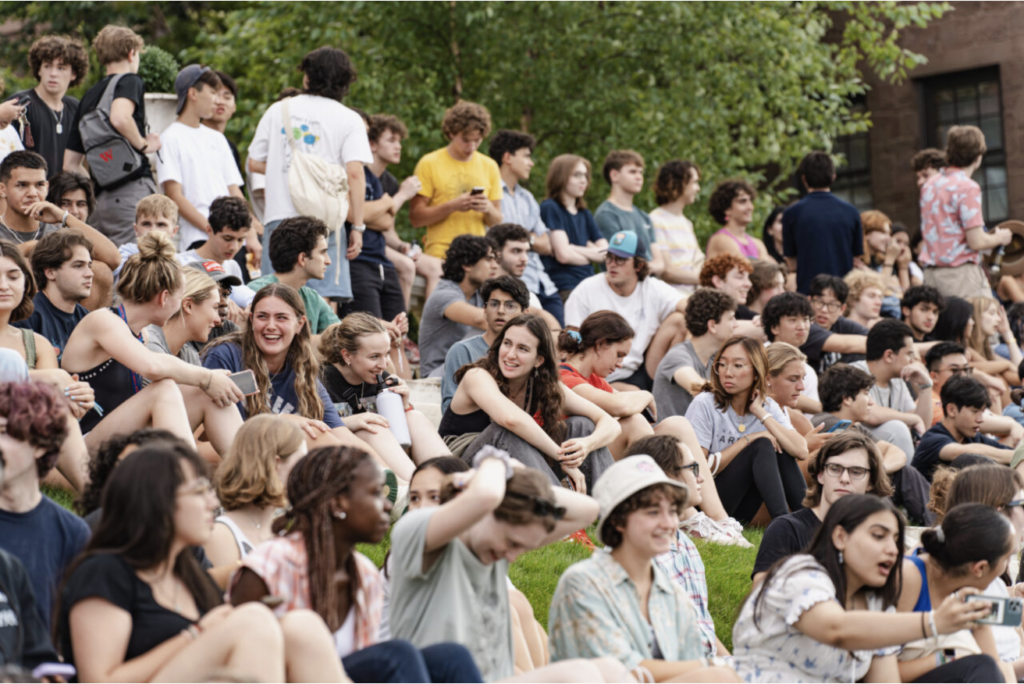by Oleksandra Volakova

Summer break is around the corner, finally bringing warm weather and plenty of pastime. For international students, it is also the time to finally meet with faraway family and friends and observe how their hometown changed over the year of their absence. Over a year, students were getting used to a new culture, 24/7 usage of English, and understanding that traveling in the US is almost impossible without a car. Some of them have had smooth transitions for various reasons: having relatives nearby, getting into friend groups, and cooking their favorite meals with their fellow compatriots. However, some were not ready to abandon their habits and practices, so getting used to a new residence was much more challenging.
Janhavi, a freshman from India, believes that “there are certain experiences on campus, rather than one linear ‘Wesleyan experience,’ which are uniquely international.”” Because the difficulties here are similar for international students, overcoming them has strengthened their relationships. “For example for a lot of us that were staying back at Wes over winter breaks. Small but significant stretches of time, the empty campus, coordinating trips to the airport make for opportunities that make the international community that much stronger and more closer knit at Wes.”
For Allan, a freshman from Kenya, the experience at Wesleyan is quite pleasant. First and foremost, it is due to “the amount of support OISA provides in stuff like community building and getting to know other international students. And ISO!!!” In the first days of the arrival, during ISO, a lot of international students have found themselves life-long groups of friends that are still actively communicating. Despite new acquaintances, we still have friends back in our hometown whom we strongly want to meet again, and “the administration could help FGLI international students in terms of funding to go back home once in a while. Doesn’t even have to be funding the whole trip, even a part of it would go far in helping them. Because students will be working for like 2 years to afford the trip, and then come back broke”.
Some people believe adaptation should be worked on – Ting, a freshman from Taiwan, “had a smooth adjustment because I’ve been planning on going abroad for several years.” Because of that, “the transition was not something that hinders my ability to connect with people here on campus that much. I do see many cultural differences, especially in pop cultural references and certain values or behavior, but overall, I find Wesleyan pretty welcoming towards international students.”
Angelina, a student from Russia, “felt a communication gap with American students because, in the beginning, internationals stuck together, and Americans did the same, forming two separate bubbles. Over time, getting over this bubble worked out, but it was quite difficult because of different cultural backgrounds.” It is her first time in the US, so it is just the beginning of getting acquainted with American culture. “Sometimes Americans talk about new memes or use slang words that I don’t understand, and it makes me feel left behind.” Another real problem is using Russian and English languages simultaneously with different people. “Both languages are getting mixed up in my head because I speak Russian with some people and English with others. Words and grammar of both languages are getting confused”.


